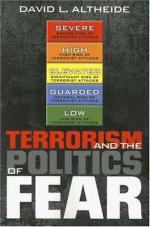|
This section contains 3,396 words (approx. 12 pages at 300 words per page) |

|
When the U.S. Department of Homeland Security (DHS) was proposed in 2002, President George W. Bush (b. 1946) noted that "in the war against terrorism, America's vast science and technology base provides us with a key advantage." What he failed to mention is that science and technology are also major sources of vulnerability to terrorist attacks, requiring decisions about censorship of publication and restriction of access to sensitive areas and materials. Thus terrorism poses special problems for the scientific and technical community in two respects: how to limit terrorist access to sensitive knowledge and technology, and what scientific research and technological developments to pursue in the interests of countering terrorist threats. Although scientists and engineers must bring their professional ethical responsibilities to bear on both tasks, it is equally important that decision makers understand the related limitations of science and technology.
Limiting Terrorist Access
Because...
|
This section contains 3,396 words (approx. 12 pages at 300 words per page) |

|


